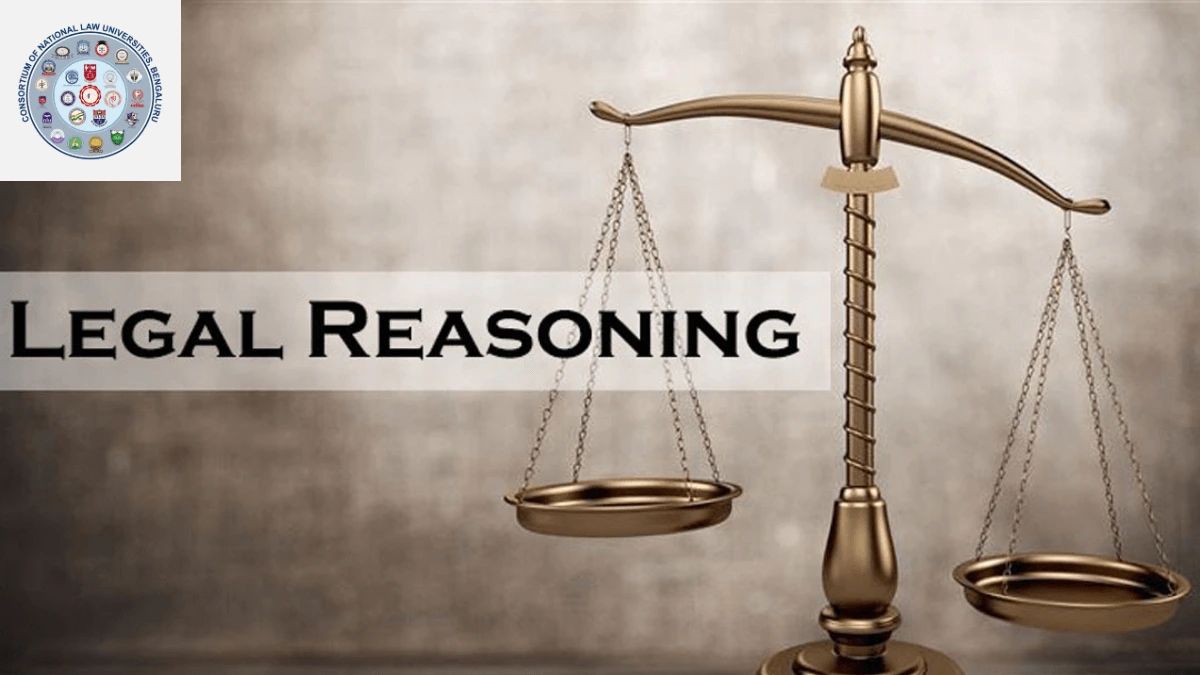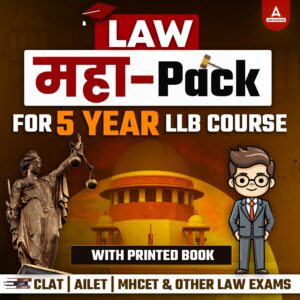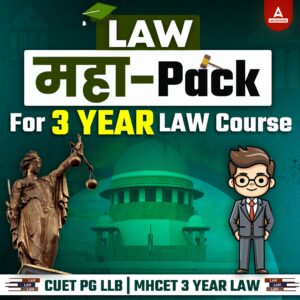Legal Reasoning Questions
The Legal Aptitude for CLAT test has evolved into a comprehension-based aptitude test with indirect and inference-based questions. The Consortium creates exam questions to test the student’s ability to think coherently.
To give you an idea of the questions asked under this division, we have compiled the Legal Reasoning Questions from previous years.
CLAT PREPARATION STUDY MATERIAL ONLINE
Legal Reasoning for CLAT
Legal Agreement
The validity of a contract ,the first requirement of a valid contract is an agreement. Every promise and all set of promises, forming the consideration for each other is an agreement. When a person to whom the proposal is made defines his assent, the proposal is said to be accepted. A proposal, when accepted, becomes a promise. An agreement is valid when one party makes a proposal or offer to other party signifies his assent.
The following are required for a valid agreement. (1) The agreement must be between two persons. It is required to be between an offeror and an offeree, who accepts the offer becomes an acceptor. Both these parties should be different persons, as one cannot enter into an agreement with himself. (2) Both the offeror and offeree in the same sense and at the same time should understand the agreement. Sometimes, there may be invitations to offer in case of advertisement of products.
An agreement to mature into a contract must create legal obligation as per the provision of contract laws that is a duty enforceable by law. Any agreement which does not create any enforceability, i.e. where the parties do not have a right to approach the court of law to avail legal remedy for breach of contract will not be a contract. This is displayed through the intention to enter into a legally binding contract which is different from a mere promise. Parties must know that if any one of them fails to fulfil his/her part of the promise, he/she would be liable for the failure of the contract.
Consideration is described as something in return. It is also vital for the validity of the contract. A promise to do something or to provide something without anything in return will not be enforceable at law and, therefore, will not be valid. Consideration need not be in kind or cash. A contract without consideration is a wagering contract or betting. Besides, the consideration must also be lawful. There is no requirement of these principles being only applicable to natural persons, they are equally applicable to corporations that qualify as legal persons.
Legal Reasoning Topics for CLAT
Passage-based questions
- Understand and infer the rules and principles given in the passage
- Application of such rules and principles to various fact situations
- Understand the consequences of the change to the rules or principles in various fact situations.
Legal Reasoning Questions for CLAT from PDF
Q 1. A wishes to buy 10KGs of rice from B. He writes a letter to B stating the same. B states that he would charge Rs. 100 per KG of rice and would be able to supply the same. A agrees to buy rice from B.
- A is the offeror and B is the offeree. B’s acceptance of A’s offer constitutes an agreement
- B is the offeror and A is the offeree. A’s acceptance of B’s offer constitutes an agreement.
- A is the offeror and B is the offerre. Since acceptance was not conveyed the first time, no agreement is constituted
- B is the offeror and A is the offeree. Since acceptance was not conveyed the first time, no agreement is constituted
Q 2. Please refer to the facts above. When B wrote a letter to A stating the price of the contract, A did not write back to B. B, however sent 10 KGs of rice to A’s home and now demands money.
- A’s initial offer signifies his interest in making an offer and a contract is formed.
- B’s letter to A is an acceptance of A’s offer and thus a contract is formed
- A should not have ordered such huge quantities of rice in the first place
- A did not respond to B’s letter and hence never accepted the offer
Q 3. A saw outside B’s shop an advertisement that stated that rice is being sold for 20 Rs a KG. He rushed inside and loaded 10 KGs of rice in a bag. When he reached the counter, he was refused the sale of rice at such a low price. Decide
- A should be given the rice at the said price as B was bound by a contract
- A should not be given the rice as no contract had been formed
- A should be given the rice as A accepted the offer that was put for public display by going to the shop
- A should not be given the rice as the advertisement was not an offer but only an invitation to offer.
Q 4. A owns a group of industries across various sectors in the market. His steel corporation is running short of money and requires immediate financial assistance to support its expansion plans. As there was no time, the banking corporation owned by A gave credit to the steel corporation.
- This is a valid contract as there are two legal persons involved
- Both corporations are controlled by the same owner. There are no two persons involved and the contract is invalid
- The contract is valid for offer and acceptance was given
- None of the above.
Q 5. A wishes to buy B’s white coloured truck. When he went to speak to B however, he stated that wanted to buy B’s truck. He did not know that B had two trucks one white and one blue. B thought that A was talking about his blue coloured truck. B agreed to sell and A agreed to buy. Decide
- This is a valid contract as the parties had the same thing in mind i.e. truck.
- This is an invalid contract as the parties did not have the same thing in mind while contracting.
- This is a valid contract for the colour of the truck is immaterial.
- Law should not take note of trifles.
Q 6. A’s father tells him over dinner “If you score 100 marks in you exam tomorrow, I’ll buy you a motorcycle”. A scores 100 marks but father later refuses. A sues his father
- This is a valid contract as there was an intention to enter into a legally binding contract.
- This is an invalid contract as there was no intention to enter into a legally binding contract.
- This is an enforceable contract as there was an intention to enter into a legally binding contract.
- This is an unenforceable contract as there was no intention to enter into a legally binding contract.
Q7. A person who causes harm to another by a negligent act is liable in law.
Facts:
Ravi was riding his bike at high speed in a crowded market. He lost balance and hit a pedestrian, causing injuries.
Question: Is Ravi liable?
Answer: Yes, Ravi is liable because he was negligent in riding at high speed in a crowded place.
Q8. Principle:
Every person has the right to private property. Taking someone’s property without consent amounts to theft.
Facts:
Rahul borrowed his friend’s book without asking because he thought it was not a big deal.
Question: Has Rahul committed theft?
Answer: Yes, because he took the book without consent, even though his intention was not dishonest.
Q9. Principle:
A contract is valid only if there is free consent of both parties.
Facts:
Sita agreed to sell her land to Ram because he threatened her with violence if she refused.
Question: Is the contract valid?
Answer: No, the contract is not valid as the consent was obtained under coercion.
Q10. Principle:
No person can be punished twice for the same offence (double jeopardy).
Facts:
Anita was fined ₹5,000 for tax evasion. Later, the court ordered her imprisonment for the same act.
Question: Is this valid?
Answer: No, Anita cannot be punished twice for the same offence.
Q11. Principle:
Killing a person in self-defence is not considered murder if the force used is reasonable.
Facts:
Arjun was attacked by a thief with a knife. To save himself, he hit the thief with a rod, causing his death.
Question: Is Arjun guilty of murder?
Answer: No, Arjun acted in self-defence using reasonable force.
Q12. Principle:
An employer is liable for the acts of his employees if such acts are done in the course of employment.
Facts:
A bus driver employed by a company drives negligently during duty hours and injures a pedestrian.
Question: Who is liable?
Answer: The company (employer) is liable because the act was done during the course of employment.
Download the ADDA247 APP for your complete Exam Preparation, Free Tests & many more: Adda247









 WB Madhyamik Admit Card 2026 OUT, Check ...
WB Madhyamik Admit Card 2026 OUT, Check ...
 NTA Again Exteneded CUET PG 2026 Registr...
NTA Again Exteneded CUET PG 2026 Registr...
 HBSE 12th Admit Card 2026 Date, Download...
HBSE 12th Admit Card 2026 Date, Download...







